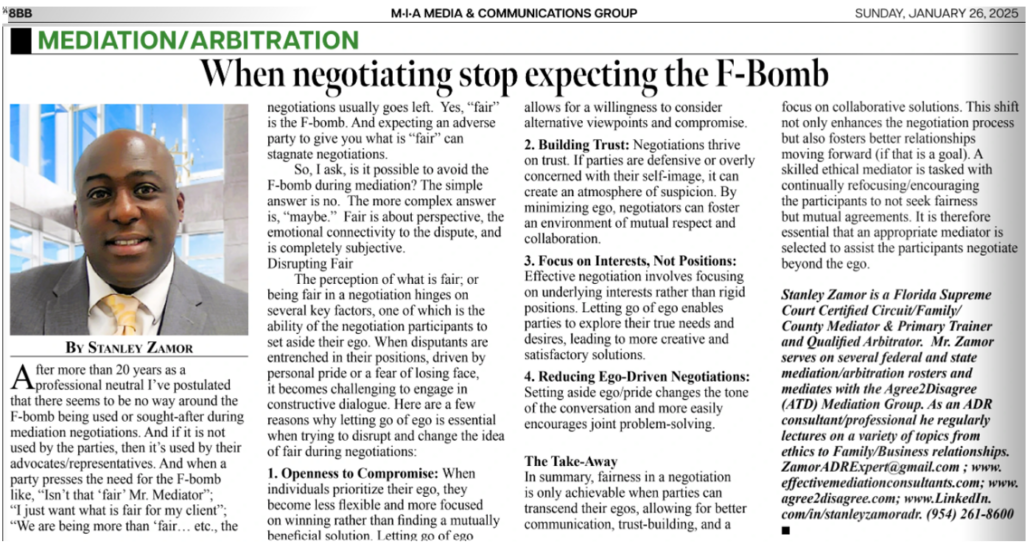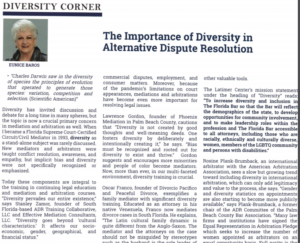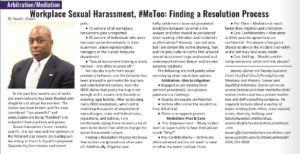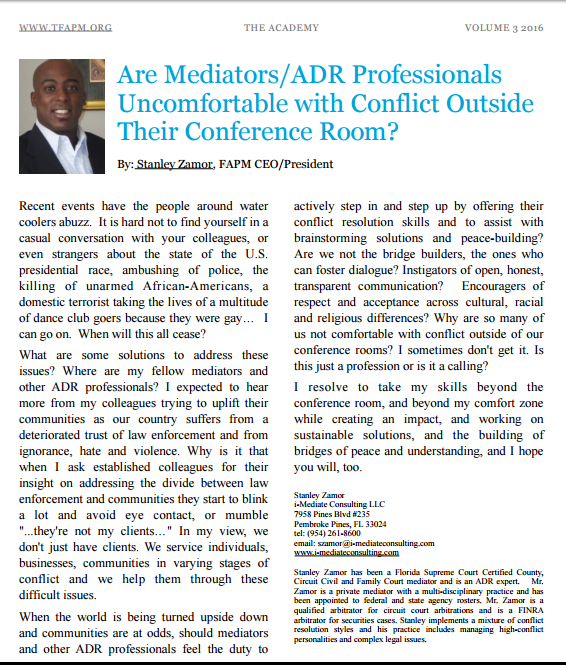When Negotiating: “Stop Expecting the F-Bomb”
After more than twenty years as a professional neutral I’ve postulated that there seems to be no way around the F-bomb being used or sought-after during mediation negotiations. And if it is not used by the parties, then it’s used by their advocates/representatives. And when a party presses the need for the F-bomb like, “Isn’t that ‘fair’ Mr. Mediator”; “I just want what is fair for my client”; “We are being more than ‘fair… etc., the negotiations usually goes left. Yes, “fair” is the F-bomb. And expecting an adverse party to give you what is “fair” can stagnate negotiations.
So, I ask, is it possible to avoid the F-bomb during mediation? The simple answer is no. The more complex answer is, “maybe”. Fair is about perspective, the emotional connectivity to the dispute, and is completely subjective.
Disrupting Fair
The perception of what is fair; or being fair in a negotiation hinge on several key factors, one of which is the ability of the negotiation participants to set aside their ego. When disputants are entrenched in their positions, driven by personal pride or a fear of losing face, it becomes challenging to engage in constructive dialogue. Here are a few reasons why letting go of ego is essential when trying to disrupt and change the idea of fair during negotiations:
1. Openness to Compromise: When individuals prioritize their ego, they become less flexible and more focused on winning rather than finding a mutually beneficial solution. Letting go of ego allows for a willingness to consider alternative viewpoints and compromise.
2. Building Trust: Negotiations thrive on trust. If parties are defensive or overly concerned with their self-image, it can create an atmosphere of suspicion. By minimizing ego, negotiators can foster an environment of mutual respect and collaboration.
4. Focus on Interests, Not Positions: Effective negotiation involves focusing on underlying interests rather than rigid positions. Letting go of ego enables parties to explore their true needs and desires, leading to more creative and satisfactory solutions.
5. Reducing Ego-Driven Negotiations: Setting aside ego/pride changes the tone of the conversation and more easily encourages joint problem-solving.
The Take-Away
In summary, fairness in a negotiation is only achievable when parties can transcend their egos, allowing for better communication, trust-building, and a focus on collaborative solutions. This shift not only enhances the negotiation process but also fosters better relationships moving forward (if that is a goal). A skilled ethical mediator is tasked with continually refocusing/encouraging the participants to not seek fairness but mutual agreements. It is therefore essential that an appropriate mediator is selected to assist the participants negotiate beyond the ego.
Stanley Zamor is a Florida Supreme Court Certified Circuit/Family/County Mediator & Primary Trainer and Qualified Arbitrator. Mr. Zamor serves on several federal and state mediation/arbitration rosters and mediates with the Agree2Disagree (ATD) Mediation Group. As an ADR consultant/professional he regularly lectures on a variety of topics from ethics to Family/Business relationships. ZamorADRExpert@gmail.com ; www.effectivemediationconsultants.com; www.agree2disagree.com; www.LinkedIn.com/in/stanleyzamoradr. (954) 261-8600















